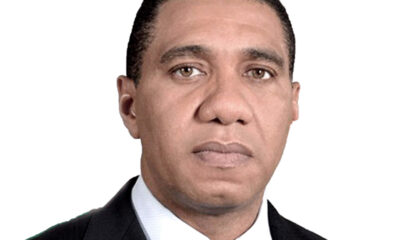Views
How Poetry Led Mia Couto To Join Mozambique’s Liberation Struggle

Mia Couto, one of Africa’s most celebrated authors and poets, never set out to be a freedom fighter. But his words, born out of a childhood of privilege and a desire for justice, caught the eye of Mozambique’s revolutionary leaders, drawing him into the heart of the country’s liberation struggle.
Growing up in colonial Mozambique, Couto’s Portuguese parents and European roots set him apart from the black majority. Yet, he found solace in the written word, and his poetry became a powerful tool for expression and connection with the world around him. “I invented something, a relationship with paper, and then behind that paper there was always someone I loved, someone that was listening to me, saying: ‘You exist’,” he recalls.
As a child, Couto was aware of the injustices of colonial society, and he knew he couldn’t be happy without fighting against it. When the fight against Portuguese rule began, Couto’s poetry made him an unlikely recruit for the revolutionary movement, Frelimo. Despite feeling out of place among the freedom fighters, his words earned him a place among them, and he became an integral part of the struggle.
Read also : Mozambique Election Crisis: EU Observers Report Manipulations, Rising Violence
Couto remembers the night he was summoned to appear before Frelimo leaders, where he was the only white boy in a crowd of 30. He made up a story about himself, feeling he had no chance of being selected otherwise. But Frelimo leaders had already discovered his poetry and decided he could help their cause. “The guy that was leading the meetings asked me: ‘Are you the young guy that is writing poetry in the newspaper?’ And I said: ‘Yes, I’m the author’. And he said: ‘Okay, you can come, you can be part of us because we need poetry,” Couto recalls.
After Mozambique gained independence in 1975, Couto continued working as a journalist until the death of Mozambique’s first president, Samora Machel, in 1986. He then quit, disillusioned with Frelimo’s discourse. Today, Couto is proud of his role in the liberation struggle and continues to write, inspired by the people and land he loves.
Features
CARICOM Ministers Convene in St. Kitts and Nevis for 28th COFCOR Meeting

The Twenty-Eighth Meeting of the Council for Foreign and Community Relations (COFCOR) of the Caribbean Community (CARICOM) took place in Basseterre, Federation of Saint Kitts and Nevis, from May 8 to 9, 2025.
The meeting was chaired by the Right Honourable Dr. Denzil Douglas, Minister of Foreign Affairs, International Trade, Industry, Commerce and Consumer Affairs, Economic Development and Investment of Saint Kitts and Nevis.
During the meeting, Foreign Ministers received a presentation on the development of a CARICOM Enlargement Policy, emphasizing the importance of aligning expansion with the Community’s founding principles and priorities.
They also considered the Report of the Technical Working Group Considering the Dominican Republic’s Application for Associate Membership in CARICOM and an update on the status of Bermuda’s Request for Full Membership of the Caribbean Community.
Ministers emphasized the need for increased CARICOM representation in international organizations, endorsing several candidatures to the United Nations, Organization of American States, and other regional bodies.
They noted progress in strengthening relations with traditional partners and expanding outreach to non-traditional partners, welcoming opportunities for strategic partnerships with countries like Canada.
The COFCOR expressed deep concern about the worsening security crisis in Haiti, calling for greater international attention and support, including humanitarian relief and long-term aid.
Ministers reaffirmed the importance of the Community’s Good Offices role through the efforts of the Eminent Persons Group (EPG) in engaging with key Haitian stakeholders and supporting peace and stability in Haiti.
Regarding border issues, the COFCOR expressed concern about increased tensions and maritime incursions in the Belize-Guatemala dispute, urging Guatemala to refrain from exacerbating the dispute.
They also reiterated support for the ongoing judicial process in the Guyana-Venezuela controversy, urging Venezuela to comply with the International Court of Justice’s Order.
The meeting included interactions with representatives from Third States, such as Mexico and the Philippines, where Ministers renewed commitment to advancing bilateral relations and explored opportunities to strengthen ties.
The COFCOR also received requests for the Community’s support for candidatures for a non-permanent seat on the United Nations Security Council from Germany, Portugal, and the Philippines.
The Ministers concluded the meeting with appreciation to the Government and people of Saint Kitts and Nevis for their hospitality and excellent arrangements, looking forward to the Twenty-Ninth Meeting of COFCOR in May 2026.
Trending
Diaspora Watch Unveils 21st Edition: A Global Perspective on Crisis and Culture

We are excited to announce the release of the 21st edition of Diaspora Watch, your go-to platform for insightful analysis and captivating stories from around the globe, dedicated to uniting African diaspora communities.
FREE Digital View: https://www.flipsnack.com/excelglobalmedia/diaspora-watch-oct-21-27-2024-vol-21/full-view.html
Print on Demand: https://www.magcloud.com/browse/issue/2926055?__r=1069759
SUBSCRIBE TO DIASPORA WATCH NOW ON THE BELOW LINK !!!
https://diasporawatch.com/subscribe-to-diaspora-watch-newspaper/
This issue dives into the heated U.S. presidential race, where Former President Donald Trump and Democratic contender Kamala Harris are making their final appeals to voters ahead of the November 5th election. With reports of vote-buying and significant campaign donations surfacing, we explore the potential implications for American democracy.
On the international front, tensions rise as the Russia-Ukraine conflict escalates, and North Korea aligns itself with Russian interests. In the Middle East, unrest persists following the assassination of a Hezbollah leader, with urgent calls for restraint as fears grow over a possible Israeli invasion of Iran.
In a thought-provoking piece, writer Tony Okoroji examines the possible global repercussions of another Trump presidency. Human rights advocates are also sounding alarms over the UK’s recent deportation of 44 Nigerians and Ghanaians, stressing the urgent need for more humane immigration policies.
The Mpox pandemic remains a serious threat in Africa, with over a thousand fatalities reported in recent weeks. We also delve into a unique Nigerian tradition, revealing how grooms may be compelled to fulfill marital rites under tragic circumstances.
On a lighter note, Washington D.C. recently celebrated creative excellence at the Annual Mayor’s Arts Award, while the Confederation of African Football has penalized Libya for its unacceptable treatment of Nigeria’s Super Eagles during a recent match.
Don’t miss our new Diaspora Connect page, designed to inform young Africans about international opportunities. Plus, be sure to check out the dazzling Didi Nkanta on our Diva Page, adding a touch of glamour to this packed edition.
Grab your copy today for a comprehensive view of our world, and join us as we strengthen the bonds within the African diaspora!
News
Ogori’s Ovia-Osese Festival: Celebrating Purity, Sanctity, and Tradition

The Ovia-Osese Festival of Ogori, a rich cultural celebration held annually in Kogi State, Nigeria, is a tribute to the values of purity, sanctity, and tradition. This vibrant festival marks the rite of passage for young women, symbolizing their transition into womanhood, while upholding the cherished customs of the Ogori people. The girls, known as “Irehnes”, undergo a series of rituals that emphasize moral purity, respect for community values, and the preservation of cultural identity.
Central to the festival is the blessing of the young women by elders, who impart wisdom about womanhood, family values, and the importance of maintaining the community’s cultural heritage. This public recognition of their maturity is accompanied by traditional dances, colorful attire, and ceremonial displays that showcase the rich history of the Ogori people.
The Ovia-Osese Festival fosters community unity, serves as a platform for cultural preservation, and highlights the significance of purity and moral integrity. The celebration also attracts visitors from far and wide, eager to witness this unique rite of passage and to participate in the rich cultural display.
Dive into the world of Diaspora Watch and stay informed, engaged, and inspired.
FREE Digital View:
https://diasporawatch.com/diaspora-watch-20th-edition…/
Print on Demand: https://www.magcloud.com/browse/issue/2918067?__r=1069759
SUBSCRIBE TO DIASPORA WATCH NOW ON THE BELOW LINK !!!
https://diasporawatch.com/subscribe-to-diaspora-watch…/

-

 Business18 hours ago
Business18 hours agoTaxation and the Nigerian Diaspora
-

 Analysis24 hours ago
Analysis24 hours agoAre Forest Guards to the Rescue? By Alabidun Shuaib AbdulRahman
-

 News23 hours ago
News23 hours agoTwo Dead as Anthony Joshua Involved in Road Crash in Nigeria
-

 Analysis6 days ago
Analysis6 days agoBuhari, Power and the Burden of Integrity, by Alabidun Shuaib AbdulRahman
-

 News19 hours ago
News19 hours agoUS Pledges $2 Billion to UN Humanitarian Programs Amid Funding Cuts
-

 News18 hours ago
News18 hours agoHolness Urges Unity as CARICOM Navigates Shifting Global Order











